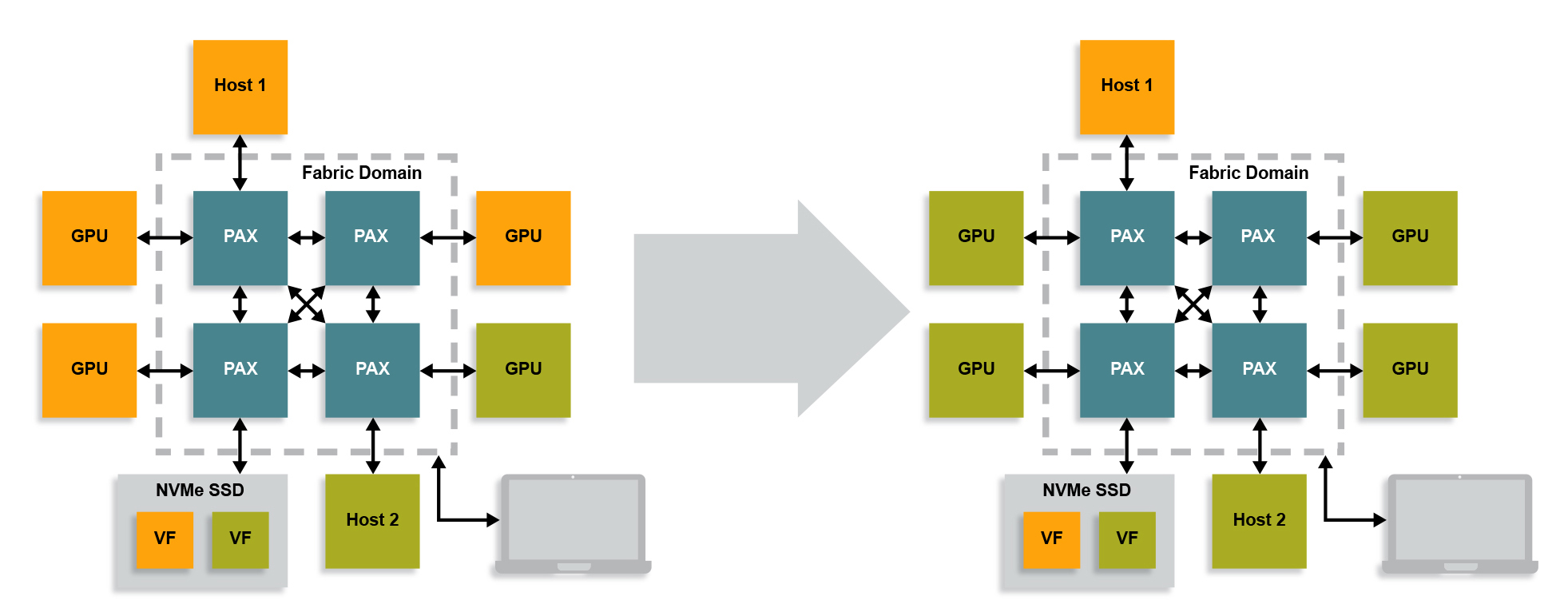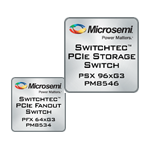Compute Connectivity
Overview
Deep learning and artificial intelligence in large scale data centers is increasingly driving operators to heterogenous compute, using more than one kind of processor core. Such architectures leverage GPUs or other accelerators such as FPGA-based accelerators to achieve higher efficiency when processing large data sets compared to what can be achieved by scaling with CPUs alone.
Enabling Heterogenous Computing
In order to ensure lowest total cost of ownership in a heterogenous compute system, flexible architectures are required which allow for scalable pools of compute and storage which allow for dynamic resource allocation, multi-host sharing, and peer-to-peer communication. This ensures that application workloads can be allocated to GPUs from multiple CPUs at different points in time, maximizing utilization of the aggregate compute resources in a data center. It also ensures that bottlenecks to storage are avoided, allowing data-hungry GPUs to be sufficiently fed. PCIe switch fabrics are an ideal choice for the construction of such architectures due to the native support for PCIe on all compute elements and the low latency that PCIe switching offers.

Microchip is a leader in PCIe storage switches and PCIe advanced fabric switches. The Switchtec PAX advanced fabric switch product family delivers the scalability, reliability, dynamic re-partitioning, ease-of-use, peer-to-peer capabilities, and latency that are enabling the broad deployment of heterogeneous compute architectures with lowest total cost of ownership.
|
|
|||||||||||||
 |
 |
|||||||||||||





